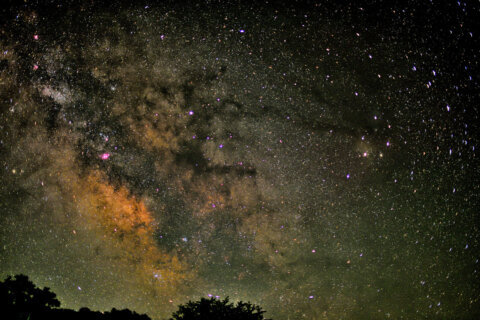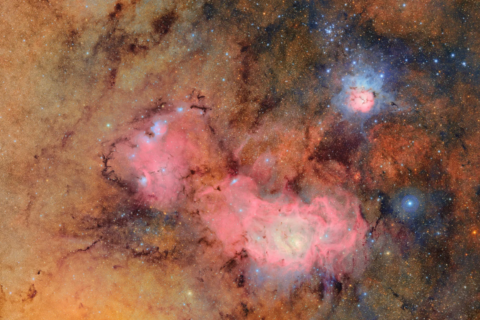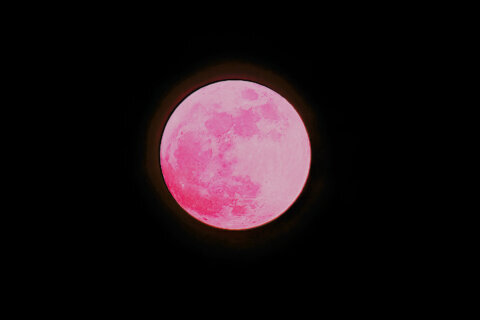June 30, 2015, was the first “Asteroid Day,” when “people from around the world come together to learn about asteroids” and what can be done to protect the planet from asteroid and comet impacts, according to the United Nations.
This year’s Asteroid Day has planned events worldwide and online — including a presentation by the Lunar and Planetary Institute, “Planetary Defenders: Protecting Earth from Potential Impacts.”
Monday, June 30, is a significant date in the history of earth impacts. On that date in 1908, the “Tunguska Event,” a stony (not icy) body between 164 and 262 feet in diameter, entered the atmosphere at around 33,500 miles per hour.
It caused a four-megaton explosion, equivalent to the blast energy 250 times more powerful than the atomic bomb dropped on Hiroshima, at 3 to 6 miles altitude over Tunguska, Russia, a remote area in Siberia.
The Tunguska Event devastated 830 square miles and flattened 80 million trees, representing the largest asteroid crash to occur in modern times. Asteroid Day is held every year to commemorate this impact, as a reminder to the world that planetary defense against asteroids and comets matters.
We had the Chelyabinsk impact event in 2013, which caused a historic number of injuries and damage to buildings — the most ever recorded from an asteroid/meteorite event. The Chelyabinsk event was the most documented asteroid explosion and meteorite fall ever, due to the number of videos, sound recordings, photographs, witness interviews and the precise recovery process of associated meteorites collected.
Chelyabinsk also improved our knowledge about the threat posed by asteroids that are smaller than a kilometer. The smaller asteroids like Chelyabinsk pose a greater hazard for damage than previously thought. In December 2018, an event with 40% of the energy release of Chelyabinsk took place over the Bering Sea, reaffirming that these kinds of events happen more often than we would like.
The United Nations, ESA and the B612 Foundation are working to develop a defensive capability, as well as improved detection for millions of asteroids.
Here are important highlights in planetary defense that have, or will, significantly improve our protection from an incoming asteroid through detection and deflection:
- The soon-to-be-operational Vera Rubin Observatory will be capable of discovering millions of new asteroids. VRO recently announced it discovered 2,104 new asteroids during its inaugural “First Look.”
- NASA has established a Planetary Defense Coordination Office.
- Interagency exercises, such as the “fifth biennial Planetary Defense Interagency Tabletop Exercise” held in Maryland, are regularly conducted to test real-world scenarios and responses.
- In 2021, NASA got approval for a space-based telescope mission, NEO Surveyor, designed specifically for finding space rocks large and small — like Chelyabinsk. This mission will greatly improve our ability to detect space rocks, especially those that lurk near the sun, and that cannot be readily seen by Earth-based telescopes. NEO Surveyor Principal Investigator Dr. Amy Mainzer told WTOP: “We’re excited to ramp up work on the spacecraft bus starting this fall in preparation for launch in September 2027.”
- NASA’s Double Asteroid Redirection Test mission changed the orbit of an asteroid in September 2022.
- A worldwide community of citizen astronomers in conjunction with the SETI Institute are actively participating in planetary defense by making real-time observations using telescopes made by Unistellar. I bought one of their telescopes to participate in their citizen science projects. Anyone with a telescope can participate as well.
A last point to consider: “The dinosaurs are dead because they didn’t have telescopes or a space program.” I use this phrase of mine to highlight what we need to do to avoid going the way of the dinosaurs who were killed off by an impact in the Yucatan Penisula 66 million years ago.
The cosmic clock is ticking …
Follow Greg Redfern on Facebook, Bluesky and his daily blog to keep up with the latest news in astronomy and space exploration.
Get breaking news and daily headlines delivered to your email inbox by signing up here.
© 2025 WTOP. All Rights Reserved. This website is not intended for users located within the European Economic Area.







